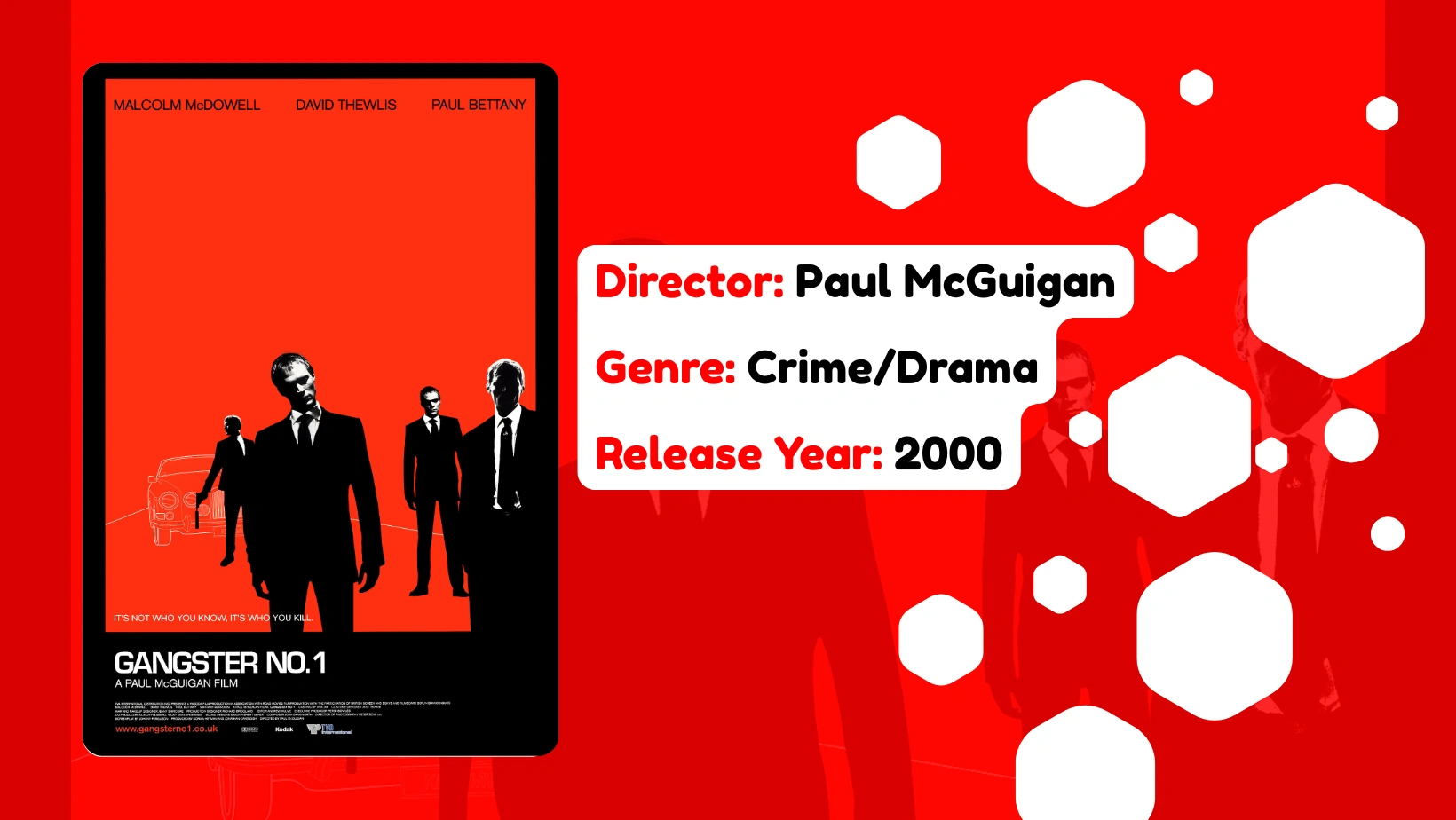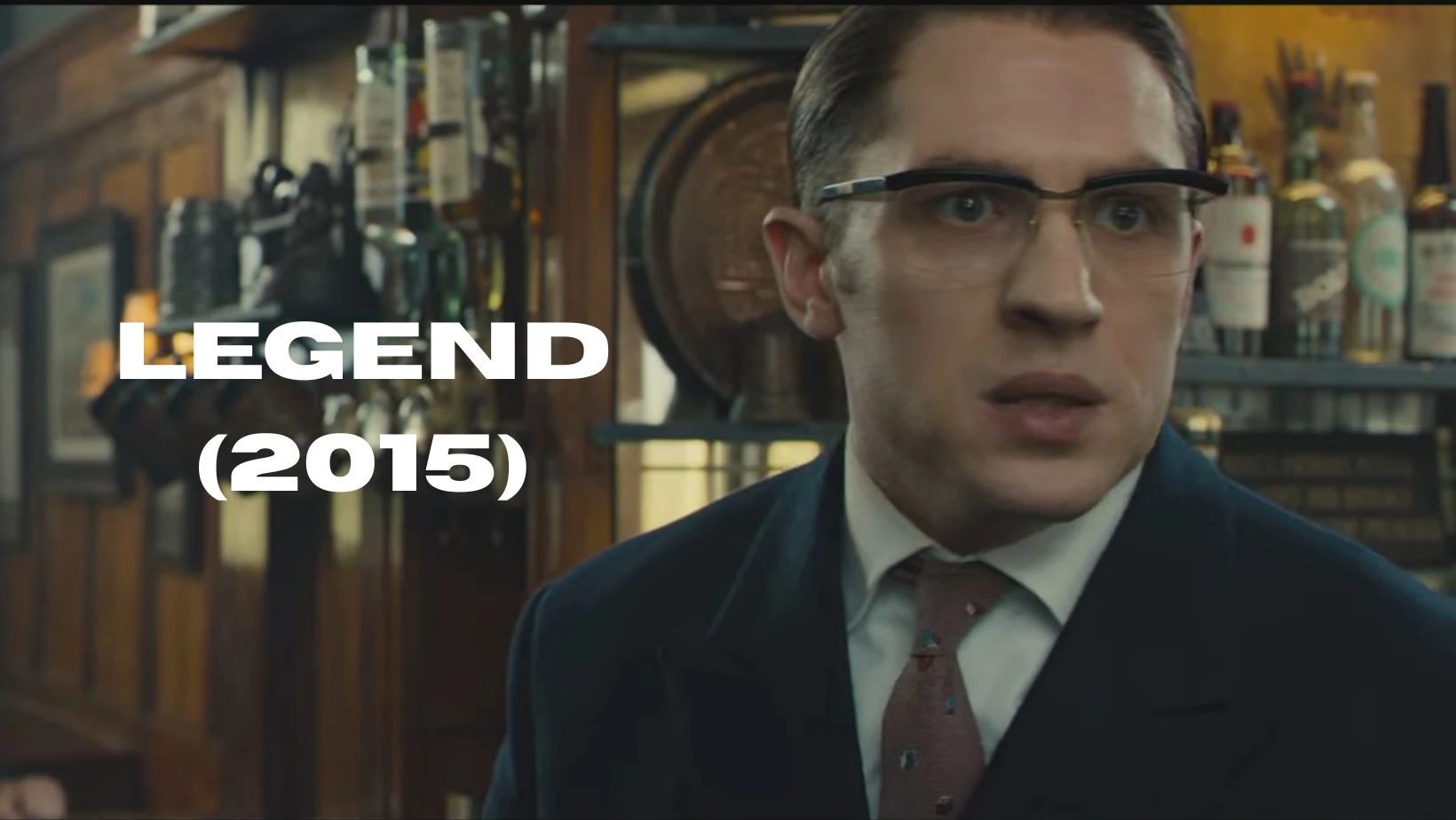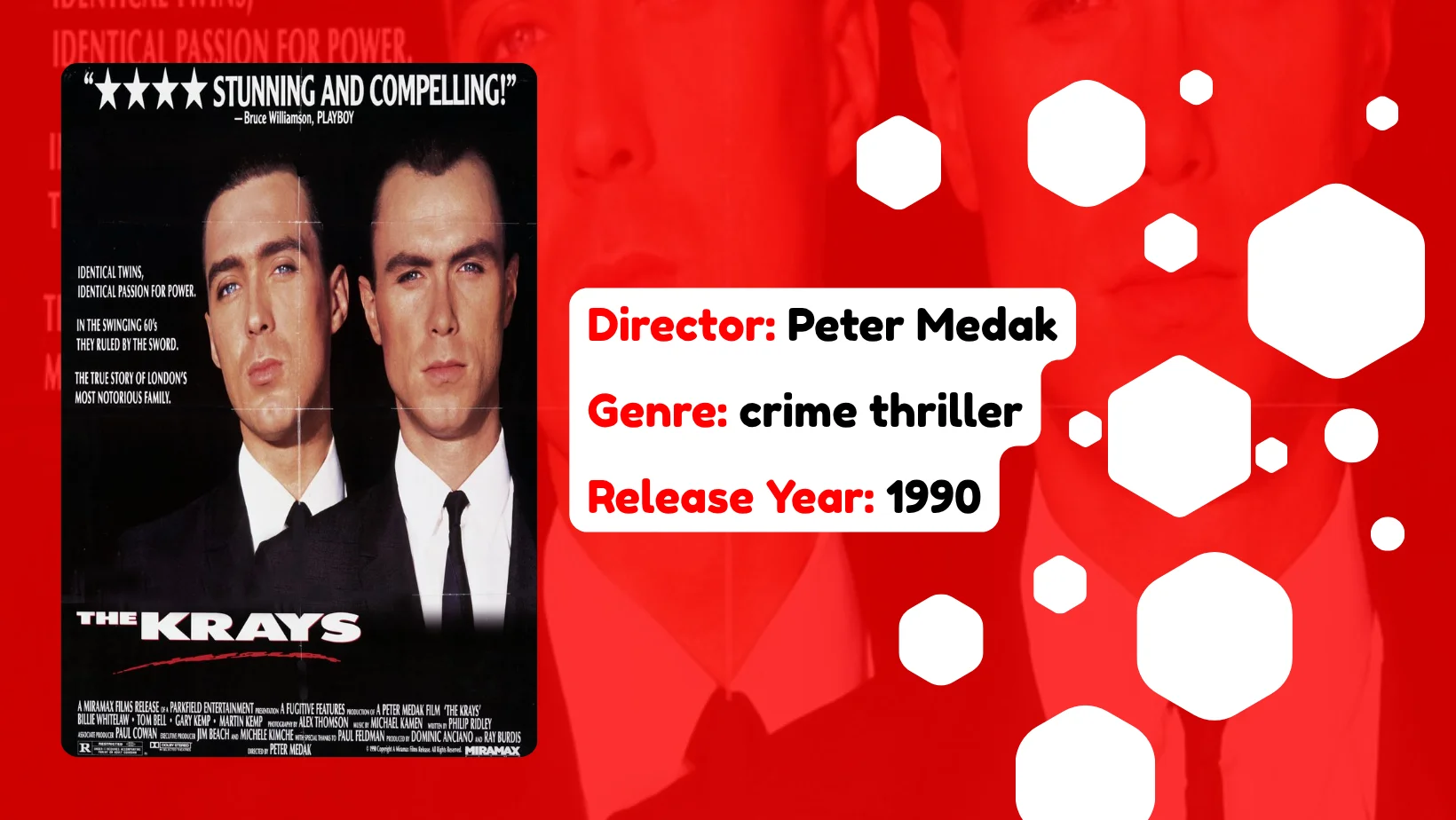Gangster No. 1 (2000) – Crime/Drama – Directed by Paul McGuigan
You know that feeling when you witness something so viscerally unsettling that you can’t look away, even though every instinct tells you to? That’s exactly what Gangster No. 1 delivers – a relentlessly brutal character study that strips away every romantic notion you might have about British gangster films and forces you to stare directly into the abyss of criminal psychopathy. This isn’t Lock Stock’s cheeky charm or Snatch’s kinetic energy; this is something altogether darker and more disturbing.
Introduction
Based on a stage play by Louis Mellis and David Scinto, Gangster No. 1 marks director Paul McGuigan’s first major feature film, and what an unsettling calling card it is. Set against the backdrop of 1960s London’s criminal underworld, this is a film that dares to ask what it really takes to claw your way to the top of the gangster hierarchy – and the answer, as it turns out, is more horrifying than you might expect. From the moment Malcolm McDowell’s weathered face fills the screen, sneering with decades of accumulated venom, you know you’re in for something that will leave you feeling like you need a shower afterward.
Storyline & Plot
The narrative structure is deceptively simple yet emotionally complex. We begin in 1999 at a grotesque boxing match dinner, where an unnamed gangster (Malcolm McDowell) learns that his former mentor Freddie Mays (David Thewlis) is being released from prison after 30 years. This news triggers a lengthy flashback to 1968, where we meet the young gangster (Paul Bettany) as he’s recruited into Freddie’s crew.
What follows is essentially a twisted coming-of-age story, charting the young man’s transformation from small-time thug to London’s most feared criminal. The plot centers around his pathological obsession with Freddie – part admiration, part homoerotic fascination, part murderous envy. When Freddie falls for nightclub singer Karen (Saffron Burrows), the young gangster’s jealousy reaches psychotic levels, ultimately leading him to orchestrate his mentor’s downfall.
The film is dialogue-heavy but never feels static, thanks to McGuigan’s sharp direction and the cast’s committed performances. Unlike many crime films that balance violence with humor, Gangster No. 1 is relentlessly serious about its subject matter. The tone is consistently dark and claustrophobic, creating an atmosphere where violence feels inevitable rather than stylized.
What struck me most about the narrative is how it functions as both a gangster film and a horror movie. The young gangster’s ascent to power isn’t presented as exciting or glamorous – it’s depicted as a series of increasingly disturbing psychological breaks that transform him from human being into something monstrous.
Paul Bettany delivers what might be the most chilling performance in British cinema as the young gangster. This is years before his Marvel incarnation as Vision, and watching him here is like witnessing a master class in controlled psychopathy. Bettany’s character is fascinating precisely because he’s so utterly without redeeming qualities – he’s vain, jealous, brutal, and completely lacking in empathy. Yet Bettany makes him hypnotically watchable, finding moments of dark comedy in the character’s obsession with fashion and status while never making him likeable.
The physical transformation scene where he carefully removes his expensive suit before torturing a rival is genuinely disturbing – not because of what we see, but because of Bettany’s clinical detachment. He’s created a character who views violence as simply another tool in his professional toolkit.
Malcolm McDowell brings decades of screen villainy to bear as the older gangster, and his performance feels like a natural evolution of his iconic Alex DeLarge from A Clockwork Orange. McDowell plays the character as a man who has achieved everything he wanted and found it completely hollow. His final confrontation with Thewlis crackles with decades of buried guilt and self-hatred.
David Thewlis is arguably the film’s MVP as Freddie Mays, the sophisticated gangster whose downfall we witness. Thewlis manages to make Freddie genuinely charismatic and dangerous without ever making him sympathetic. His Freddie is a man who understands the rules of his violent world and accepts them, making his ultimate fate feel like tragic inevitability rather than mere plot mechanics.
Saffron Burrows brings intelligence and strength to what could have been a thankless role as Karen. Her scenes with Bettany, particularly their confrontation in Freddie’s apartment, showcase her ability to convey both vulnerability and steel.
Direction & Style
Paul McGuigan demonstrates remarkable maturity for a first-time feature director, crafting a film that feels both stylish and utterly grounded in reality. His direction is precise and unflinching, never glamorizing the violence while still acknowledging its seductive power. The film’s visual style perfectly captures the duality of 1960s London – the surface glamour hiding profound ugliness beneath.
McGuigan’s handling of violence is particularly noteworthy. Rather than showing everything explicitly, he often cuts away at crucial moments, letting our imagination fill in the horrific details. This approach makes the violence feel more disturbing than any amount of gore could achieve.
The film draws clear inspiration from classics like Get Carter and The Long Good Friday, but McGuigan brings his own sensibility to the material. Where those films had elements of black comedy, Gangster No. 1 is unrelentingly grim, more aligned with the psychological horror tradition than the crime genre.
Cinematography, Music & Technical Aspects
The cinematography by Peter Sova creates a visual palette that’s simultaneously elegant and grimy, perfectly capturing the contradiction at the heart of criminal glamour. The 1960s London locations feel authentic without descending into period cliché, and the production design creates spaces that feel both luxurious and deeply uncomfortable.
John Dankworth’s score is particularly effective, using jazz and period music to create an atmosphere of barely contained menace. The famous sequence where torture is scored to upbeat pop music is genuinely haunting – not because it’s clever, but because it reveals something genuinely disturbing about the character’s psychology.
The sound design creates an oppressive atmosphere where every footstep and door creak feels laden with threat. These technical elements combine to create a world that feels simultaneously attractive and repulsive, which perfectly serves the film’s thematic concerns.
Audience Appeal
This film is definitely not for everyone, and I mean that as both a warning and a recommendation. If you’re looking for the witty banter and stylized action of Guy Ritchie’s films, you’ll be disappointed. Gangster No. 1 is for viewers who appreciate uncompromising character studies and aren’t squeamish about psychological horror.
The film will particularly appeal to fans of serious crime dramas like Chopper or Bronson – films that examine criminal psychology without flinching. It’s also perfect for viewers who appreciate strong British acting and aren’t put off by relentlessly dark subject matter.
However, I should warn sensitive viewers that this film contains genuinely disturbing content. The violence, while not always explicitly shown, is psychologically brutal, and the main character’s complete lack of empathy can be genuinely unsettling to watch.
Overall Impression
Gangster No. 1 is a film that gets under your skin and stays there. It’s not an easy watch, nor is it meant to be. This is a movie that forces you to confront the reality behind gangster mythology – the actual psychological damage required to become “number one” in a world built on violence and intimidation.
The film’s greatest strength is its unwavering commitment to its dark vision. There are no heroes here, no last-minute redemptions, no moments of levity to provide relief from the oppressive atmosphere. It’s a film that trusts its audience to handle difficult material without hand-holding.
My main criticism is that the film’s relentless grimness occasionally threatens to become monotonous. The young gangster’s one-note psychopathy, while brilliantly performed by Bettany, sometimes limits the dramatic possibilities. Additionally, the film’s final act doesn’t quite deliver the emotional payoff that the setup promises.
But these are minor quibbles with what is ultimately a powerfully disturbing piece of cinema. Gangster No. 1 succeeds because it never asks us to like or understand its protagonist – instead, it forces us to witness the logical endpoint of unchecked ambition and violence.
Verdict / Rating
★★★★☆ (7.5/10)
This is a must-watch if you enjoy uncompromising character studies, brilliant British acting, and crime films that prioritize psychological realism over stylistic flourishes.








